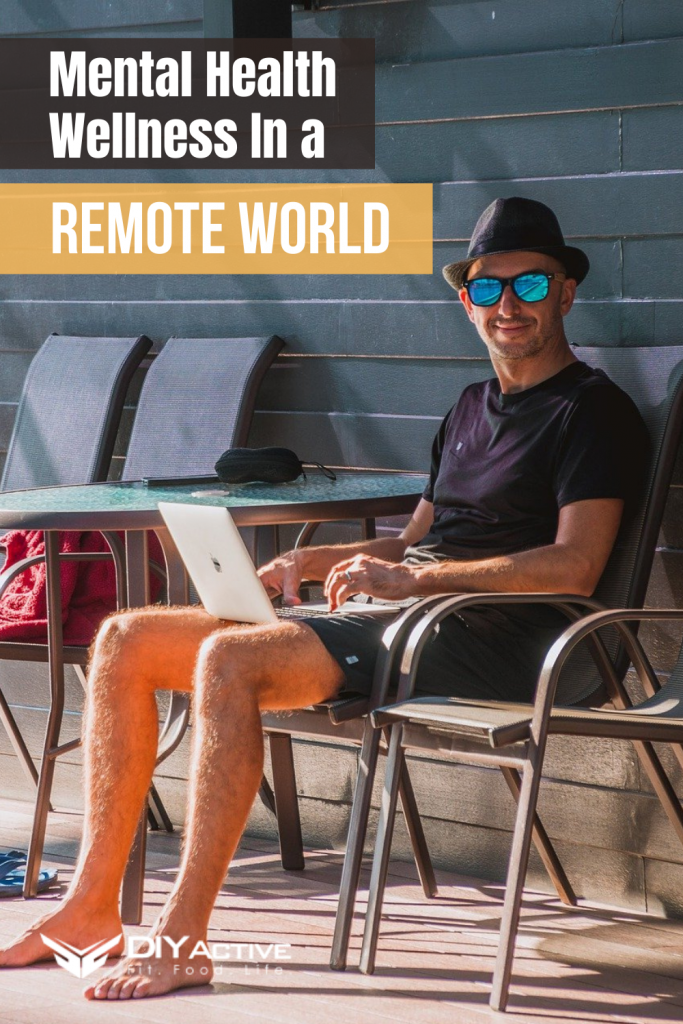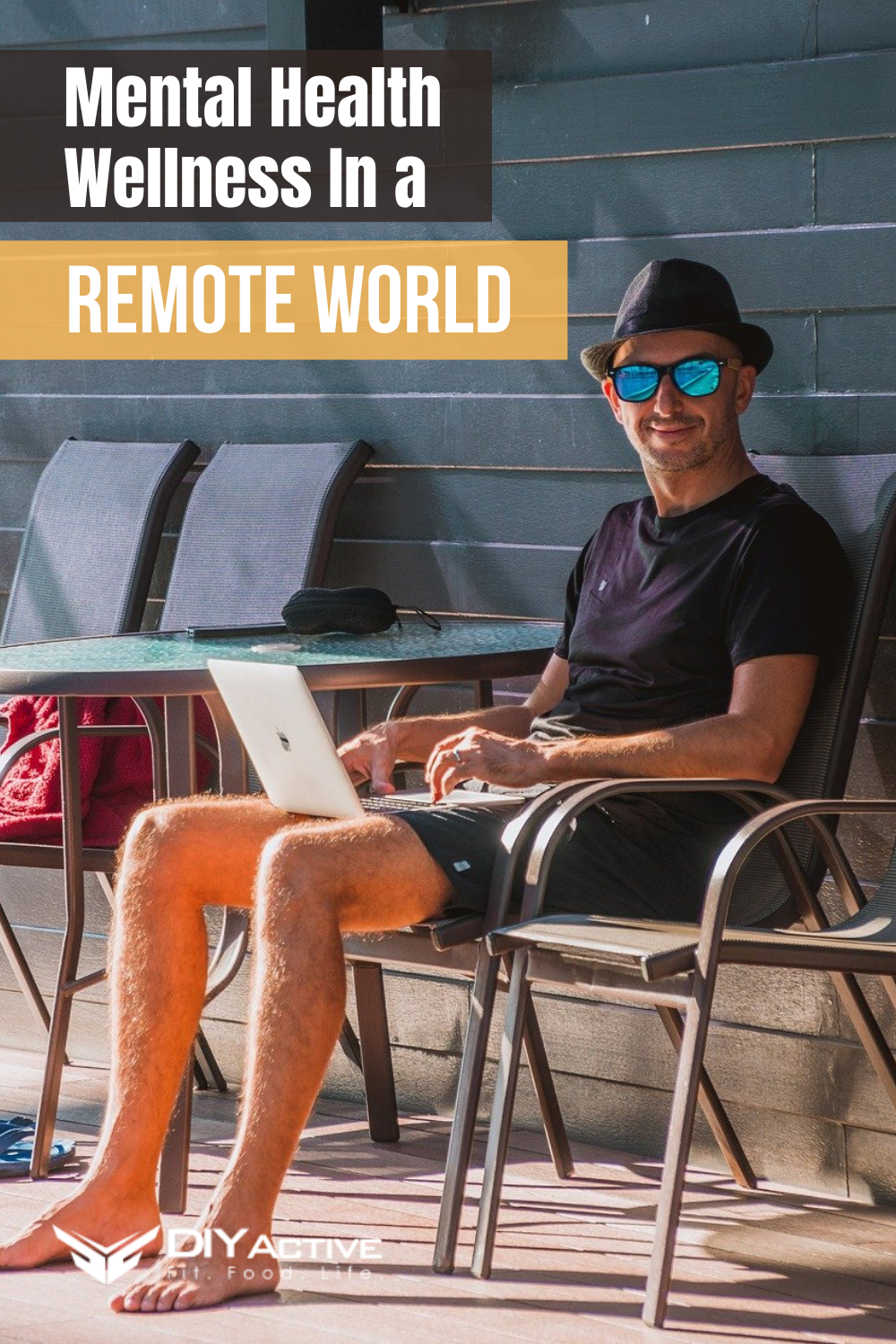
Importance of Mental Health Wellness
“We’re not designed to work more than about 40 hours a week. Our systems wear out and the quality of the work suffers. After 50 hours, it crashes and burns.” — journalist and novelist, Katrina Onstad.
It’s not as if most professionals are oblivious to the dangers of overworking themselves. There are plenty of workplace statistics and case studies out there that corroborate this statement. So why do 82% of people that work from home in the U.S. still struggle with feeling burnt out?
Mental Health Wellness Working Remotely
In this post, we’ll explore the factors that contribute to feeling burnt out as a remote worker, the importance of mental health wellness, and three ways to practice a healthy work-life balance all of the time (not just once in a blue moon).
How COVID-19 Impacted Non-Remote Businesses
Even though remote work isn’t a new concept, many businesses that weren’t accustomed to this workstyle had to transition from in-person to fully remote at the start of the COVID-19 pandemic.
Fast forward to many months later and several of these same businesses are choosing to adopt a hybrid workplace model rather than make a full return to in-person.
The reason?
Well, according to most employers (83%), remote work yields great results for businesses. And for each employee that works remotely even half of the time, these employers can save $11,000 every year.
While there are certainly perks to this type of work environment — i.e., flexible schedules, the ability to live and work anywhere, cost savings, etc. — it’s a big adjustment for newly remote employees.
When a company is meeting or surpassing quarterly goals, it’s easy to assume that everything is copacetic with the employees. But if you look closer, this might not actually be the case.
To ensure that a company’s success is sustainable long-term, it’s important to prioritize mental health wellness in the workplace. If this isn’t prioritized, any newfound success probably won’t last long.
Before we share specific ways that you can create a better work-life balance for yourself or your team, let’s take a look at some of the main reasons why remote workers experience burnout.
Why Remote Workers Struggle With Mental Health Wellness
Feeling burnt out is a symptom of poor mental health wellness and a lack of work-life balance. It’s something that happens quietly and individually, which is to say that the signs might not be obvious to other team members immediately.
Whether you’re new to the remote working environment or have been remote for years, certain factors are always at play that can make it difficult to maintain a healthy work-life balance.
1. Less work-life and home-life separation
One of the most immediate shocks to a remote worker’s system is that you have to make the mental switch from work-life to home-life every day.
In some cases, this is made easier by creating a designated workspace within the home or even commuting to a co-working space. But for many remote workers, it’s challenging to draw the line between being on and off the clock when you live and work in the same place.
Because of this lack of physical separation, it’s difficult for 61% of remote workers to not do work-related tasks after hours.
2. Isolation & disconnection from co-workers
What remote workers save in commuting expenses, they might lose in co-worker connections.
In lieu of in-person meetings, team collaboration for remote-first companies happens over digital channels like Slack, Zoom, and Frame.io.
While most companies have virtual meetings down to a tee, remote workers can still feel isolated and disconnected from their team and the company at large.
 Among remote tech professionals, 61% report feeling disconnected from their team when it comes to offline communications.
Among remote tech professionals, 61% report feeling disconnected from their team when it comes to offline communications.
3. Time management
Flexibility can be a refreshing change for professionals who are used to rigid schedules, but it can also lend itself to extended work hours if time management becomes an issue.
Lack of structure can create a host of problems for remote workers. You might find yourself working after hours instead of spending time with family or responding to emails at 10 o’clock at night.
Even when you have a solid routine down, these three factors can really do a number on your mental health if you’re not careful. That’s why we’re sharing three ways that remote workers can establish and maintain a healthier relationship with work.
How to Prioritize Mental Health Wellness
Stop glorifying workaholism
There’s truth to the old saying that “if you love what you do, you’ll never work a day in your life,” but this is only true in moderation.
If you’re working 50+ hour weeks, you’ll experience burnout even in a job you love. Overtaxing yourself in or out of an office takes a toll on your mental health and wellbeing. It’s not sustainable for anyone.
The first step in prioritizing your mental health is accepting that workaholism isn’t healthy and shouldn’t be glorified. If you don’t do this, you’ll always struggle to find the right work-life balance.
Conduct regular self check-ins
Working late might happen from time to time, especially when an unexpected crisis or issue arises. But this shouldn’t be an everyday occurrence.
It’s important to denormalize overworking and regularly check in with yourself from day to day to make sure that your mental health isn’t being neglected.
Do you feel connected with your team? Valued as an employee? Over or under-burdened with assignments?
Ask yourself these types of questions and be honest when you answer.
If you’re struggling, it’s much better to address this issue head-on with your team and managers than it is to let it fester. Unless you acknowledge the problem and work toward a solution, this will continue to negatively affect your productivity and quality of work.
Ask for help and advice
Holding yourself accountable with regular self-check-ins is beneficial, but only to a certain extent.
If you feel like you are chronically overwhelmed and overworked, it’s probably time to seek out help from a professional.
The good news is that many companies offer an employee assistance program and/or health benefits that can cover part, if not all, of therapy costs.
Don’t be afraid to ask for help or advice — whether from a therapist, co-worker, adviser, friend, or anyone else.
Wrap-Up
By prioritizing your mental health wellness as a remote worker, you’ll deliver high-quality job performance on a consistent basis without sacrificing your off time.
Mackenzie is a copywriter at Soundstripe, a company that provides filmmakers, creators, and advertisers with royalty free sports music and resources on how to add music to videos.



